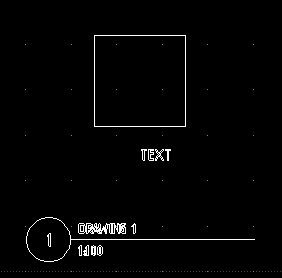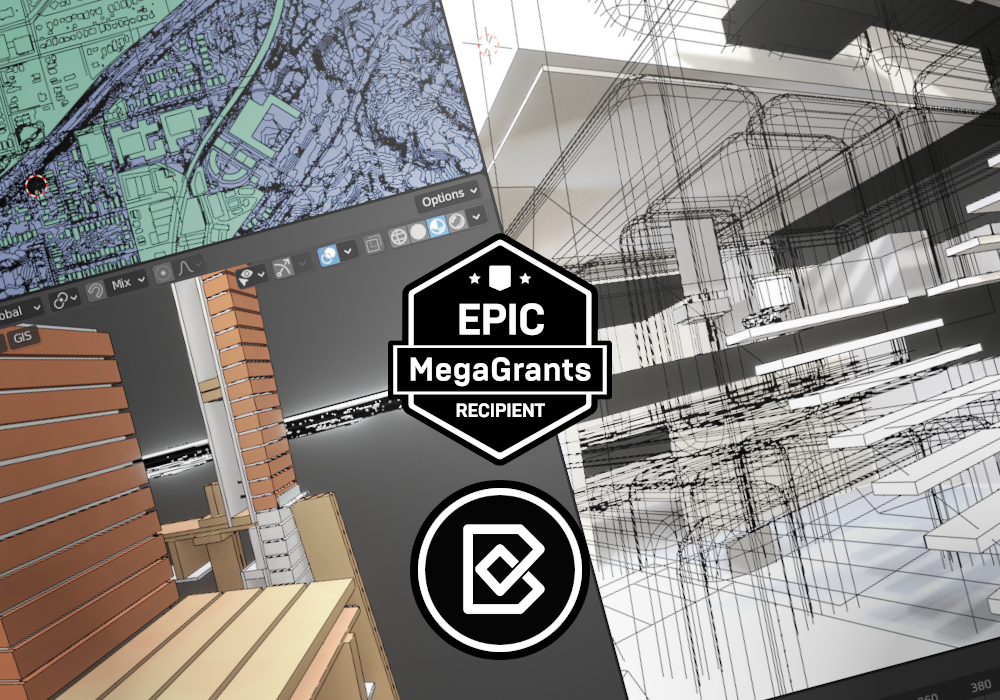Just an update on this! The meeting went well! There were two attendees from Epic, as well as myself on the call. We discussed the (ambitious) goals of the project, and the possibilities of collaboration with Epic Games projects.
The conclusion sounds promising. We have determined that there is definitely an opportunity to collaborate in terms of the IFC support in Datasmith, of which more of their audience is demanding support for metadata. Metadata in IFC is a hairy topic, so this is definitely something we can help with. This additional commitment raises the application submission from the original request of 15,000USD to 30,000USD. I personally see this as an advantage, as OpenBIM only works if the ecosystem grows with it. We also discussed the recent development of the buildingSMART 2020 Awards Finalist, as well as the release of Ladybug Tools. These have been added to the submission to help support the application.
I have just resubmitted the application, and there is now a further waiting period. I'll keep everyone posted when I hear more!
The revised application is quoted below in a separate post due to its length.
Describe your project
Note: this is a re-submission of an earlier application, as discussed with Ken Pimentel.
The objective of the BlenderBIM Add-on project is to provide a complete free software workflow in an OpenBIM production pipeline in the Architecture, Engineering, and Construction (AEC) industry. This is the ability to work from early feasibility and concept phase, project coordination, detailed design, fabrication & construction, facility management and building maintenance, post-occupancy evaluation, and tear-down. The AEC industry is currently proprietary dominated.
The main software package is an add-on for Blender. It provides import and export support for the IFC (Industry Foundation Classes) schema: the ISO standard of 2D/3D data + semantic metadata exchange in multiple formats (IFC-SPF, IFCXML, IFCJSON, IFCZIP). It also provides import and export support of BCF (BIM Collaboration Format), the standard for design coordination in AEC. Apart from file IO, it supports the relevant workflows of authoring and analysing building models, including semantic classifications and properties, classification system integration (e.g. Uniclass), clash / collision detection, data cleanup, CSV scheduling, quantity take-off calculation tools and costing, 2D drawing and construction documentation generation, diffing files, construction sequencing, automated quality audits, COBie facility management, lighting simulation, structural analysis, energy modeling, and parametric constraints. Much of its functionality is also additionally provided as standalone headless Unix-style utilities, which are shared with other free software projects like FreeCAD, and XeoKit. Similarly, the underlying library IfcOpenShell which provides schema parsing is shared between many free software projects, of which we contribute to.
I have successfully (but painfully) used it to deliver a small 250sqm highly bespoke building from concept design to fabrication and construction - including all drawings, construction sequencing, and scheduling. The add-on is currently being used in some aspects of large infrastructure projects in Sydney, including quality auditing, clash detection, and facility management data preparation. The project has seen publication in AECMag (alongside an open letter from UK architects to current proprietary monopoly Autodesk), BlenderNation, and has started a growing community called OSArch.org of AEC professionals in various disciplines, looking to use more free software in architecture, engineering and construction. There are now 400 forum members in half a year.
In addition to providing features equivalent to (and exceeding) existing proprietary software, the BlenderBIM Add-on project aims to be different in two ways. First, they will be highly modular, allowing users to mix and match to create their own pipelines without lock-in to a platform / GUI / vendor tailored to their needs, and easily modify or extend the pipeline if it does not suit their needs. Secondly, the tools will uphold the highest standards possible of open data standards, exchange, and interoperability conventions, allowing us to integrate data across disciplines to make wiser decisions in the design and management of the built environment. It is currently observed that the lack of robust integration between disciplines is a factor in poor design of the built environment.
The BlenderBIM Add-on project has recently been nominated as a buildingSMART 2020 Awards Finalist for the Technical Excellence category. buildingSMART is the organisation behind ISO standards for BIM data. The BlenderBIM Add-on project has also recently released a much awaited port of the Ladybug Tools for building physics and environmental analysis, providing the first full free software stack for these incredibly popular environmental design tools.

